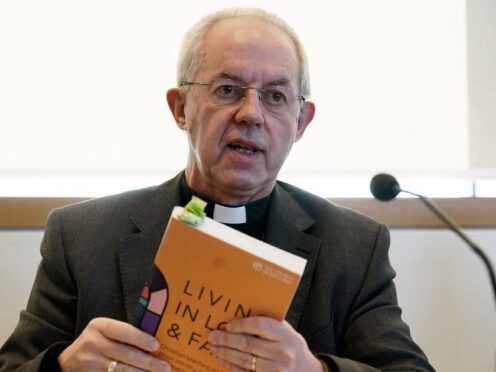The Archbishop of Canterbury has told of his “exceptionally precious” daughter, living with a disability, as part of a debate that led to the Church of England General Synod passing a motion to uphold the human dignity of disabled children.
The Diocese of Liverpool, The Ven Pete Spiers, brought the motion before the Synod in York, which sought to challenge the “common assumption that bringing a disabled child into the world is a tragedy to be avoided”.
It called on the Government and healthcare providers to ensure that mothers who find out their unborn child may be disabled are given “comprehensive and unbiased information” about the condition and available support.
The motion also called upon healthcare providers and other public bodies to improve the support they give to parents and families of children born with disabilities, as well as upon dioceses, parishes and chaplaincies to consider how they might improve available pastoral advice and support.
After a counted vote of the whole Synod, 312 voted in favour of the motion and 0 voted against.
In his opening speech, The Ven Spiers made clear that the motion does not intend to “open up the debate about the rights and wrongs of abortion”.
He said: “Whether a pregnancy proceeds or is ended, love, compassion and grace are needed more than anything.
“(The motion) does not intend to open up the debate about the rights and wrongs of abortion, but acknowledges that this is a part of the world in which we live that it is a woman’s right to choose, but she should have the opportunity to find out all the options available to her.
“This is particularly the case if she has discovered that the child she is carrying might be disabled.”
Following the opening speech, attendees were given the opportunity to speak as part of a debate.
Most Rev Justin Welby told the Synod of his daughter, Ellie, in her 30s, who is neurodiverse.
The archbishop said: “Before she was born, during the pregnancy, there was some concern and a test was offered, but it was made very, very clear to my wife that if the test was taken and proved positive it would be expected that we ask for a termination.”
“Ellie is exceptionally precious,” he went on. “She’s precious because she’s wonderful, she’s kind, she is someone who gets cross and is happy and is sad.”
He told of a conversation he had with his family about divine healing during which his other children said she “wouldn’t be Ellie” if she was “healed”, calling that the “profound theological truth…about intrinsic human value and intrinsic human dignity”.
“I hope that this motion passes not just because of Ellie but because of our belief in human dignity,” he said.
Others spoke movingly in support of the motion over the hour-long debate, with Mary Bucknall, a member of Deaf Anglicans Together, telling the Synod: “Disabled children need to know that they are valued for who they intrinsically are and not labelled by their disability or even worse still rejected before or after birth.”
Many parents of disabled children spoke, with Synod member Rebecca Chapman telling of her “beautiful” autistic son.
She said: “At diagnosis, we got given a leaflet and sent off to start a life we never expected.
“To get support for him at school we have had to fight again and again.
“Our beautiful son is more than worth every moment of fight, every call where you get put on hold, every battle with a faceless system, but Synod it should not have to be so terribly hard.”
She went on to say that her family’s experience of going to church with him has been “mixed”.
“Church is not always welcoming of difference or disability,” she said. “But it’s vital that we offer both pastoral advice and acceptance and support to families living with the joy and the challenge of having a disabled child.
“Please Synod, I plead with you, let’s not just be a church that stands and stares. Let’s ask how we can help: What do you need? How are you really? And then actually listen to the answer.”
